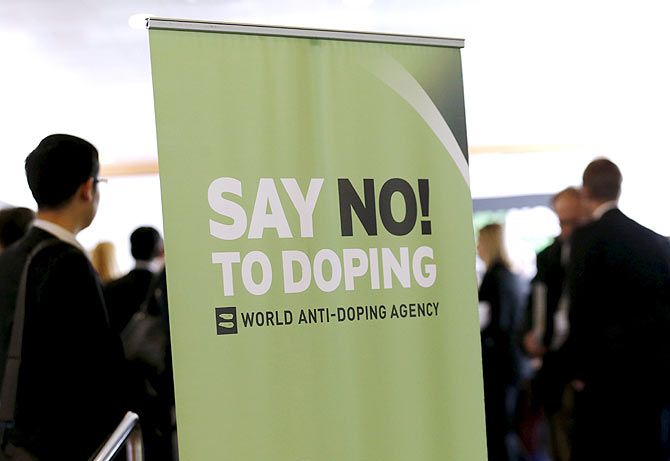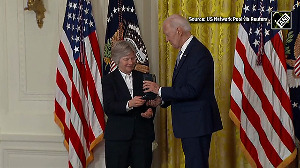Testers were also routinely obstructed from gaining access to athletes who used military cities as the location for their whereabouts knowing doping control officers would need special permission to gain access.
The WADA update also revealed several examples of widespread efforts to avoid testing, including one detailed instance where an athlete tried to use a container inserted inside her body that presumably contained clean urine.

Russian athletes continue to fail drug tests and obstruct doping control officers, the World Anti-Doping Agency said on Wednesday in a damning report that paints a gloomy picture of efforts to enact doping reforms.
The WADA report, which covers a six-month period from last November following the suspension of the Russian Anti-Doping Agency, comes two days before athletics' governing body rules on whether Russian competitors can compete in the Rio Olympics.
According to the report, Russian athletes returned 52 adverse findings, including 49 for meldonium. It also said there were 23 missed tests, which the report called "significant," 111 whereabouts failures and 736 tests were declined or cancelled.
Testers were also routinely obstructed from gaining access to athletes who used military cities as the location for their whereabouts knowing doping control officers would need special permission to gain access.
"The report today outlines some of the serious challenges faced in implementing an effective testing programme in Russia, and it indicates that much work still needs to be done," WADA said in a statement.
"It is clear that cultural change is required to embrace clean sport. There is clearly still a long road ahead to ensure all athletes, national federations and support personnel understand the importance of a robust anti-doping programme."
According to WADA, drug testers were reportedly intimidated when accessing military cities by armed agents threatening them with expulsion from the country.
Once allowed to enter, security staff created significant delays for testers entering venues and were closely monitored once inside, the report said.
"You're hiding your athletes in closed military cities, it takes 30 days to get permission to get in there, who do you think you're kidding," former WADA president Dick Pound, who led the independent commission last year that uncovered widespread state-sponsored doping in Russia, told Reuters.
"There is something I always tell my grandchildren, when you've dug yourself into a hole, stop digging."
The update arrived ahead of the International Association of Athletics Federation's key vote on Friday on whether to allow Russian track and field athletes to compete at the Aug. 5-21 Rio Olympics.
Russia was suspended from all athletics competitions in November after an independent report from the WADA revealed widespread state-sponsored doping.
The latest update on testing from WADA certainly will not help the Russian cause.
WADA said information contained in its latest report has been shared with the IAAF taskforce that will present its report at Friday's meeting. Rune Andersen, head of the IAAF taskforce on Russia, told Reuters that issues raised in the report will be considered.
The WADA update revealed several examples of widespread efforts to avoid testing, including one detailed instance where an athlete tried to use a container inserted inside her body that presumably contained clean urine.
But according to WADA, when the athlete tried to use the container it leaked onto the floor and not into the collection vessel. The athlete then threw the container into the trash and tried to bribe the doping control officer.
She eventually provided a sample which WADA said returned an adverse analytical finding.
One athlete was seen running away from the mixed zone after competing in an athletics event as a chaperone was coming to notify of a drug test while another left the stadium during her a race and could not be located.
The report said some Russian athletes did not complete events or withdrew from start lists in an effort to elude doping control officers.
"For clean athletes, it’s tough to stomach," said United States Anti-Doping Agency chief executive Travis Tygart.
"Obviously, you can’t clean up a culture of corruption in a matter of months – it's just not possible – and that’s why we’ve stood firmly with a broad, global coalition of those who care about clean sport in saying that the Russian track and field federation can’t be allowed to compete at the Games."













 © 2025 Rediff.com -
© 2025 Rediff.com -